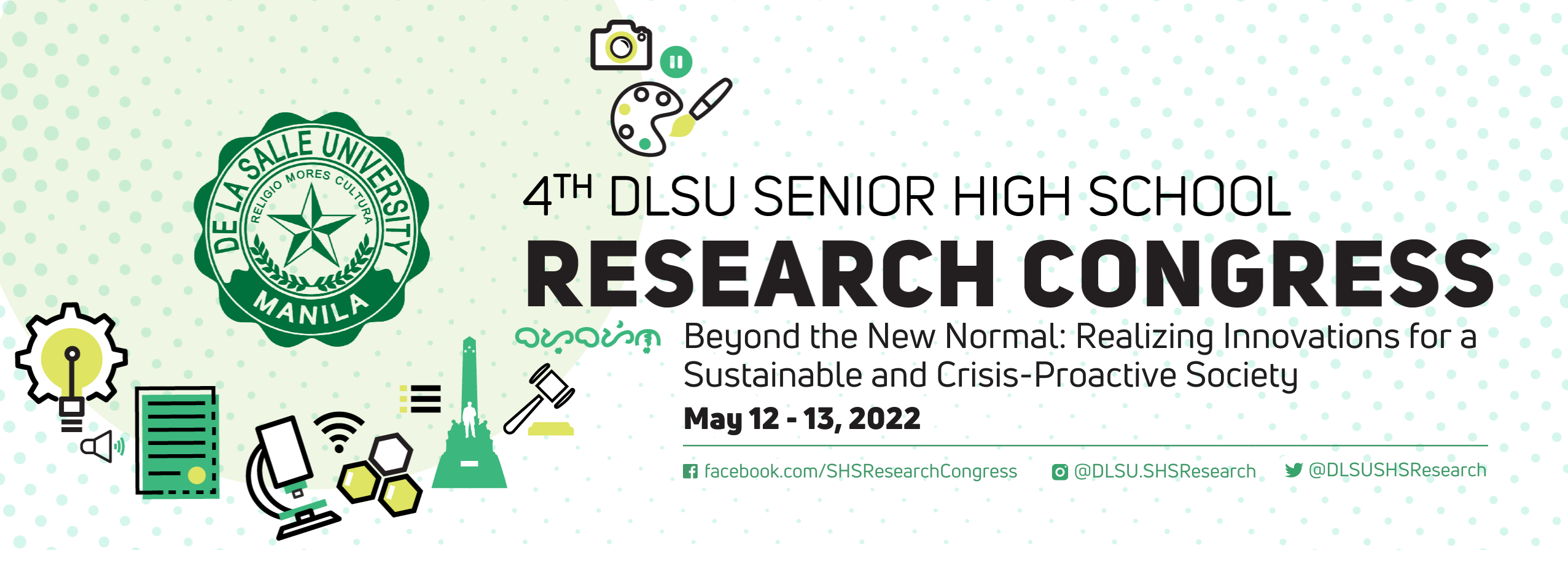Document Types
Paper Presentation
Research Theme (for Paper Presentation and Poster Presentation submissions only)
21st Century Learning and Innovations (CLI)
Research Advisor (Last Name, First Name, Middle Initial)
Karl Man S. Collado
Start Date
13-5-2022 8:00 AM
End Date
13-5-2022 10:00 AM
Abstract/Executive Summary
As advancements in technology and social media platforms become more prominent, so do the number of fake news articles disseminated through them. One’s cognitive ability (CA) and emotional intelligence (EI) have individually been found to influence one’s news validation ability (NVA). However, the relationship between both CA and EI and NVA for real and fake Facebook news posts has not been well-studied, especially in the context of the Filipino youth. To address these gaps, the NVAs of several DLSU Senior High School students for real and fake news posts were modelled from their CAs and EIs using fixed-effect linear and ordinal regression analyses with interaction effects. The data gathering was done through an online survey questionnaire via Google Forms. The statistical significance of the CAs, EIs, and the interaction between the CAs and EIs of the students were assessed to determine their viability as predictors of NVA. Despite the predictors being statistically insignificant (α=0.05) potentially due to a low response rate, CA and EI were found to positively relate with real and fake NVA across all models, consistent with prior findings. It was also found that the ordinal logistic models fitted the data better than their multiple linear counterparts based on their AIC values, indicating that OLR analyses may be preferable for assessing NVA in future studies and in practical use.
Relating the Cognitive Ability and Emotional Intelligence of the De La Salle University Senior High School Students with their Real and Fake Facebook News Post Validation Ability
As advancements in technology and social media platforms become more prominent, so do the number of fake news articles disseminated through them. One’s cognitive ability (CA) and emotional intelligence (EI) have individually been found to influence one’s news validation ability (NVA). However, the relationship between both CA and EI and NVA for real and fake Facebook news posts has not been well-studied, especially in the context of the Filipino youth. To address these gaps, the NVAs of several DLSU Senior High School students for real and fake news posts were modelled from their CAs and EIs using fixed-effect linear and ordinal regression analyses with interaction effects. The data gathering was done through an online survey questionnaire via Google Forms. The statistical significance of the CAs, EIs, and the interaction between the CAs and EIs of the students were assessed to determine their viability as predictors of NVA. Despite the predictors being statistically insignificant (α=0.05) potentially due to a low response rate, CA and EI were found to positively relate with real and fake NVA across all models, consistent with prior findings. It was also found that the ordinal logistic models fitted the data better than their multiple linear counterparts based on their AIC values, indicating that OLR analyses may be preferable for assessing NVA in future studies and in practical use.


